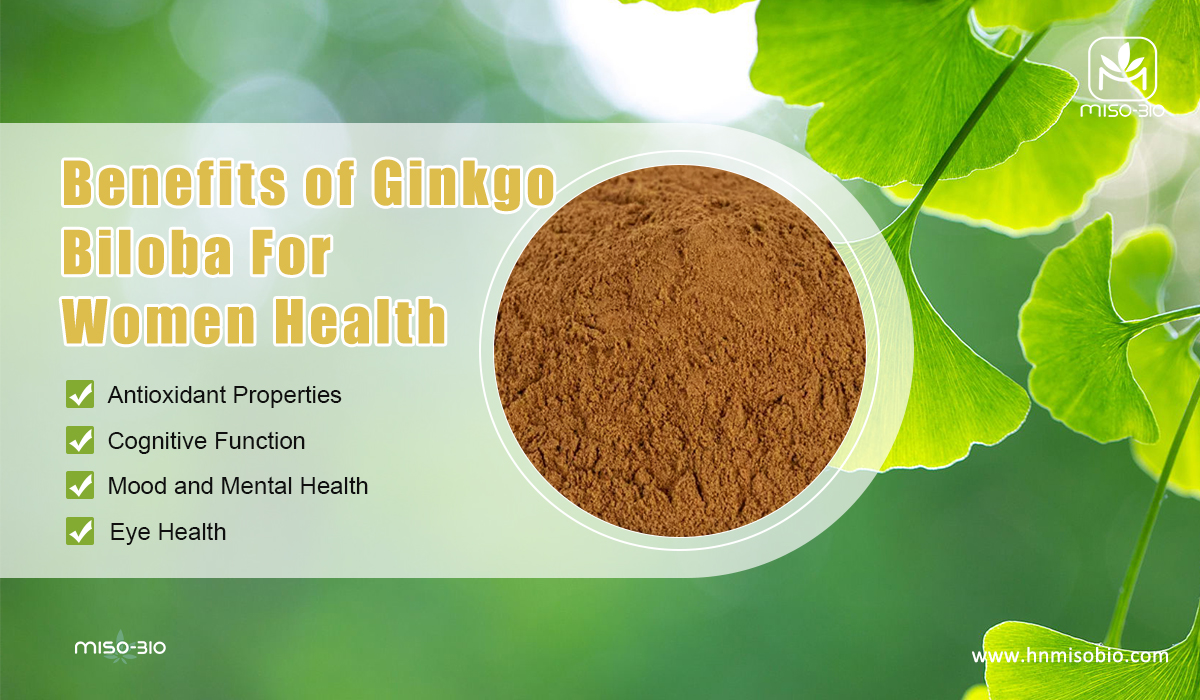
Ginkgo biloba has been used in traditional medicine for thousands of years. While some of its benefits are generally applicable to both men and women, there are some relevant scientific benefits for women.
Benefit 1 :antioxidant properties
Ginkgo biloba extract contains antioxidants that help fight against free radicals, which are unstable molecules that can damage cells and contribute to aging and various diseases. Antioxidants may benefit women by reducing oxidative stress and inflammation, which can impact overall health.
Benefit 2 :cognitive function
Some studies suggest that ginkgo biloba may improve cognitive function, including memory and concentration. This could potentially benefit women, particularly during menopause when cognitive changes, such as memory problems and difficulty concentrating, may occur.
Benefit 3 :sexual health
Ginkgo bilobaextracthas been used in traditional medicine to enhance sexual function, including improving libido and sexual satisfaction. Some studies suggest that ginkgo biloba may help improve sexual function, which could be relevant for women experiencing sexual health concerns.
Benefit 4 :eye health
Ginkgo biloba may have positive effects on eye health by improving blood flow and reducing oxidative stress in the retina. This could potentially benefit women who are at higher risk of age-related eye conditions such as macular degeneration.
Benefit 5 :Mood and mental health
Some studies suggest that ginkgo biloba may have antidepressant and anti-anxiety effects, which could potentially benefit women who are more susceptible to mood disorders such as depression and anxiety.
Shall we take ginkgo biloba extract supplement every day?
If you are considering taking ginkgo biloba every day, it's important to consider several factors, including your overall health, medical history, potential interactions with medications you may be taking, and the specific dosage and formulation of ginkgo biloba you plan to use. Ginkgo biloba supplements are available in various forms and strengths, and the appropriate dosage can vary depending on these factors.
What should we avoid while taking ginkgo?
As a medicine ingredient, ginkgo biloba has many similar features with medicine. That means it may interact with other herb extracts or medicine. So we need pay attention if we takeginkgo together with other herbal/health supplements that can:
1 affect blood-clotting. This includes angelica (dong quai), capsicum, clove, danshen, garlic, ginger, ginkgo, horse chestnut, panax ginseng, poplar, red clover, turmeric, and willow.
2 increase your risk of seizures. This includes EDTA, folic acid, GBL (gamma butyrolactone), GHB (gamma hydroxybutyrate), glutamine, hyssop oil, juniper, L-carnitine (levocarnitine), melatonin, rosemary, sage, wormwood, and others.
Bottom of line
It's always a good idea to consult with a healthcare provider before starting any new dietary supplement, including ginkgo biloba, to ensure it is safe and appropriate for you based on your individual health needs.